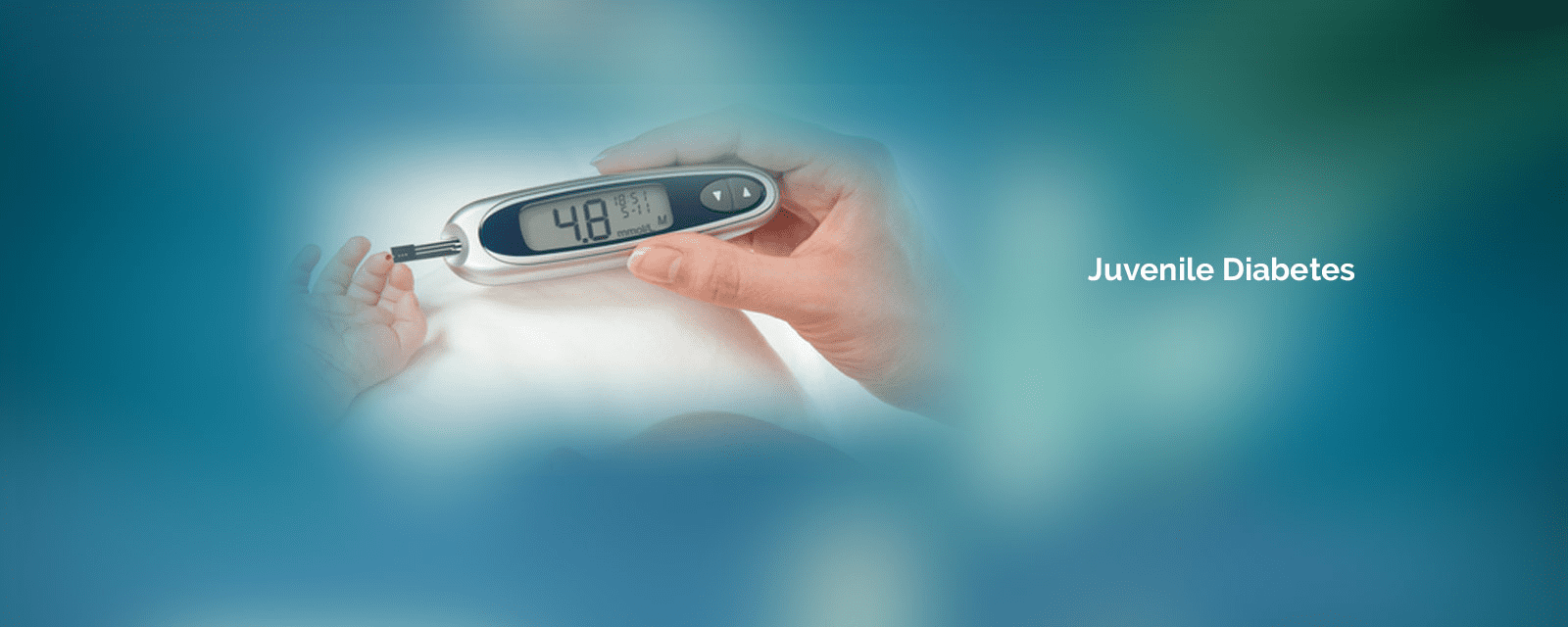Juvenile diabetes refers to Type1 Diabetes. Almost 90% of the people who have Type 1 Diabetes are younger than 25 years of age. In this condition the beta cells located at the base of the pancreas, lose their ability to produce insulin, which is a hormone necessary for the absorption of glucose into the cells of the body. This is an auto-immune disease, which means the immune system attacks and destroys the beta cells. This condition is quite common in India, with more than 1 million cases reported per year. The condition is known to effect boys more than girls.
Symptoms of Juvenile Diabetes are caused by high blood sugar, and include:
- Frequent urination, as the kidneys are trying to remove excess sugar from the blood
- Being thirsty as result of dehydration due to frequent urination
- Weight loss, as sugar is not being used by the body
- Increased hunger, as the body isn’t using calories from food
- Blurred vision, due to water being sucked into the eye by the sugar which builds up in the lens
- Fatigue, as the calories aren’t being used
See a doctor if you or your loved ones experience the above mentioned symptoms. Always trust premier medical institutions like Paras Hospitals Group, which have specialized departments for the treatment and care of your condition.
The cause is the immune system attacking the body, as to why that happens, there is no certain or explicable reason. Genetics is to blame, and some environmental factors as well. Known risk factors include:
- Family History: This is the primary risk factor. Any with a history of this disease is at risk.
- Genetics: There are certain genes which if present indicate an increased risk of developing juvenile diabetes.
Juvenile diabetes is a condition which cannot be cured, but has to be managed. The aim here is to keep the blood sugar levels as close to normal as possible. Management of this disease includes:
- Taking insulin, to compensate for the beta cells not producing it in your body. This has to be done daily, mostly it is a shot at night which has to be injected by the patient themselves. This lasts till the next day.
- Monitoring blood sugar, this has to become a habit.
- Eating a balanced and healthy diet, as planned by your doctor or nutritionist.
- Exercising helps a lot, working wonders and keeping the blood sugar in control.



 Call us at
Call us at